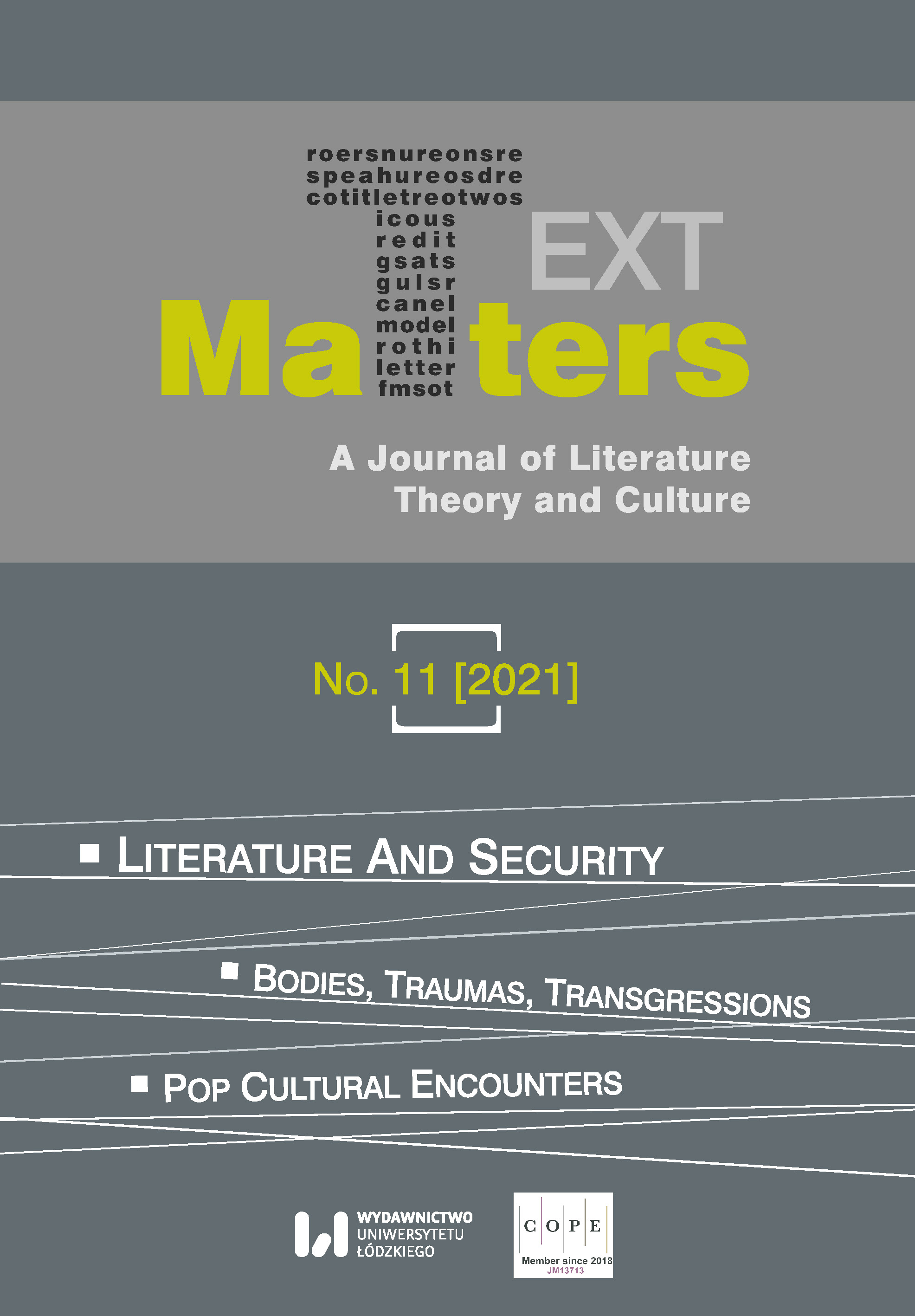Lacanian Implications of Departures in Zemeckis’s Beowulf from Beowulf, the Old English Epic
DOI:
https://doi.org/10.18778/2083-2931.11.12Keywords:
Beowulf, Zemeckis, adaptation, Lacanian criticismAbstract
Although Robert Zemeckis’s film Beowulf (2007) is a re-writing of the Old English epic Beowulf with a shifting of perspective, certain details in the film can only be understood by referring to the poem. That is, a better understanding of the film is tied closely to an awareness of certain narrative elements in the epic. The emphasis on Beowulf in the poem shifts to the Mother in the film. This shift obviously leads to a recontextualization of the narrative elements of the former text. In the epic, Grendel is left without a father; however, in the film, he is fathered by Hrothgar but this biological fathering does not lead to linguistic castration. In their case, things are reversed: rather than the infant being castrated by the Law/language, the biological father is led to a psychic regression due to the son. This appears to be a dramatization of the conflicts between the (m)Other and the shared Other/the representative of the paternal metaphor: that is, Hrothgar. This time, the (m)Other conquers the representative of the paternal metaphor and annuls his masculinity, which radically changes the way in which we evaluate the course of events in the film. These departures make more sense if they are analyzed against the background of Lacanian epistemology. This paper aims to explore the film’s departures from the poem by approaching it from a Lacanian perspective.
Downloads
References
Beowulf. Directed by Robert Zemeckis, performances by Ray Winstone, Antony Hopkins and Angelina Jolie, Paramount Pictures, 2007.
Google Scholar
Beowulf. Translated by Leslie Hall. D. C. Heath, 2005.
Google Scholar
Birlik, Nurten. “Hermeneutics of Lack of Lack and the Dyad of the (m)Other and the Shared Other, in Zemeckis’s Beowulf.” Neophilologus, vol. 102, no. 2, 2018, pp. 241–56. https://doi.org/10.1007/s11061-018-9552-1
Google Scholar
DOI: https://doi.org/10.1007/s11061-018-9552-1
Brivic, Shelly. Joyce through Lacan and Žižek: Explorations. Springer, 2008
Google Scholar
DOI: https://doi.org/10.1057/9780230615717
Elliott, Anthony. Psychoanalytic Theory. Palgrave, 2002.
Google Scholar
Hodapp, W. F. “‘no hie fæder cunnon’: But Twenty-first Century Film Makers Do.” Essays in Medieval Studies, vol. 26, 2010, pp. 101–08. https://doi.org/10.1353/ems.2010.0002
Google Scholar
DOI: https://doi.org/10.1353/ems.2010.0002
Hook, Derek. “Absolute other: Lacan’s ‘big Other’ as Adjunct to Critical Social Psychological Analysis?” Social and Personality Psychology Compass, vol. 2, no.1, 2008, pp. 51–73. https://doi.org/10.1111/j.1751-9004.2007.00067.x
Google Scholar
DOI: https://doi.org/10.1111/j.1751-9004.2007.00067.x
Lacan, Jacques. Écrits. Translated by Bruce Fink. W. W. Norton, 2006.
Google Scholar
Lacan, Jacques. The Language of the Self: The Function of Language in Psychoanalysis. Translated by A. Wilden. The Johns Hopkins UP, 1981.
Google Scholar
Nasio, Juan-David. Five Lessons on the Psychoanalytic Theory of Jacques Lacan. Translated by David Pettigrew and François Raffoul. State U of New York P, 1998.
Google Scholar
Swanton, Michael. English Literature Before Chaucer. Longman, 1987.
Google Scholar
Traidl, Veronika. Telling Tales about Beowulf: The Poem and the Films. Herbert UtzVerlag, 2016. https://doi.org/10.1515/east-2017-0034
Google Scholar
DOI: https://doi.org/10.1515/east-2017-0034
Published
How to Cite
Issue
Section
License

This work is licensed under a Creative Commons Attribution-NonCommercial-NoDerivatives 4.0 International License.













